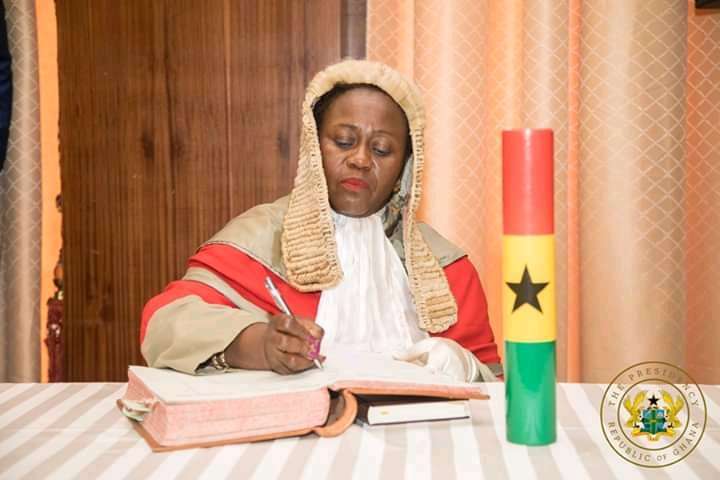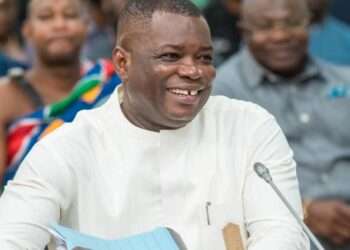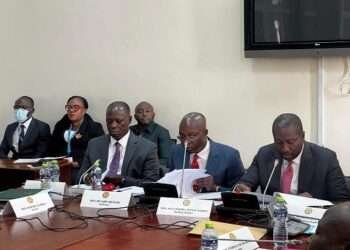In a well-articulated statement on the importance of upholding peace and the rule of law within a democratic framework, Professor Stephen Kweku Asare, a respected legal scholar and Democracy and Development Fellow in Public Law and Justice at the Ghana Centre for Democratic Development (CDD-Ghana), reiterated the significance of two core principles.
According to Professor Asare, ensuring peace in any democratic society requires strict adherence to the rule of law and the preservation of the separation of powers.
“The two principles provide a clear framework for resolving questions about whether a parliamentary seat has become vacant, in a way that upholds justice and preserves social order. These principles are essential for ensuring peace that lasts, grounded in fairness and institutional integrity”.
Professor Stephen Kweku Asare, Legal Scholar and D&D Fellow in Public Law and Justice at CDD-Ghana
This approach, he argued, ensures that disputes are handled impartially, safeguarding the integrity of Ghana’s political system.
Legal vs. Political: A Crucial Distinction
Professor Asare’s first principle draws a firm line between political and legal processes. He pointed out that disputes over parliamentary seat vacancies should never fall into the hands of political actors, as this would invite partisan exploitation.
Instead, such questions in the view of Prof. Asare should be addressed within established legal frameworks, where impartiality and justice are prioritized, adding that this is critical in avoiding the distortion of Ghana’s democratic processes.
“GOGO predicted in 2020 that ‘if you leave it to politicians, it is going to become partisan because if you have a Speaker who is NPP inclined, he will use his power to vacate the seat of NDC members and vice versa.”
Professor Stephen Kweku Asare, Legal Scholar and D&D Fellow in Public Law and Justice at CDD-Ghana
This principle resonates with efforts to shield the political system from partisanship and preserve public trust in democratic institutions.
By relying on legal solutions, Prof. Asare argued there is a clear demarcation between political manoeuvring and judicial processes, reinforcing fairness and the strength of Ghana’s democratic infrastructure.
The Role of the Courts: Adhering to Constitutional Mandates
The second principle emphasized by Professor Asare concerns the proper jurisdiction for handling such disputes.
Citing Article 99 of the Ghanaian Constitution, he asserted that the framers of the Constitution clearly assigned the responsibility of resolving disputes about parliamentary seat vacancies to the High Court.
The High Court’s specialized mandate according to him, allows it to delve into such matters, while appellate reviews are designated for the Court of Appeal, leaving no room for the Supreme Court to intervene in these matters.
Professor Asare highlighted that the Supreme Court’s role is reserved for addressing broader constitutional issues and not cases that the Constitution mandates for lower courts.
“The Supreme Court has no role in these matters as the Court articulated in the Wulensi matter. When the Supreme Court oversteps and takes on cases meant for the high court, it risks undermining the constitutional order and appearing to engage in political matters”.
Professor Stephen Kweku Asare, Legal Scholar and D&D Fellow in Public Law and Justice at CDD-Ghana
This type of overreach, he warned, can damage public confidence in the judiciary, creating the perception that the court is venturing into political matters rather than remaining an impartial body upholding justice.

Preserving Judicial Integrity for Lasting Peace
By adhering strictly to the jurisdiction outlined in Article 99, Professor Asare argued that Ghana can protect both the integrity of its judicial system and the peace of the nation.
The High Court’s jurisdiction over parliamentary seat disputes, he emphasized, is designed to ensure that such matters are resolved in a manner that preserves the rule of law while insulating the judiciary from any perceptions of political interference.
This judicial integrity, Professor further argued, is essential for maintaining public confidence and ensuring peace within the democratic framework.
His reflections underscore the critical need for separation of powers and the importance of respecting constitutional mandates.
In an era where political tensions can quickly escalate, a commitment to these two core principles is essential in preventing democratic backsliding.





















